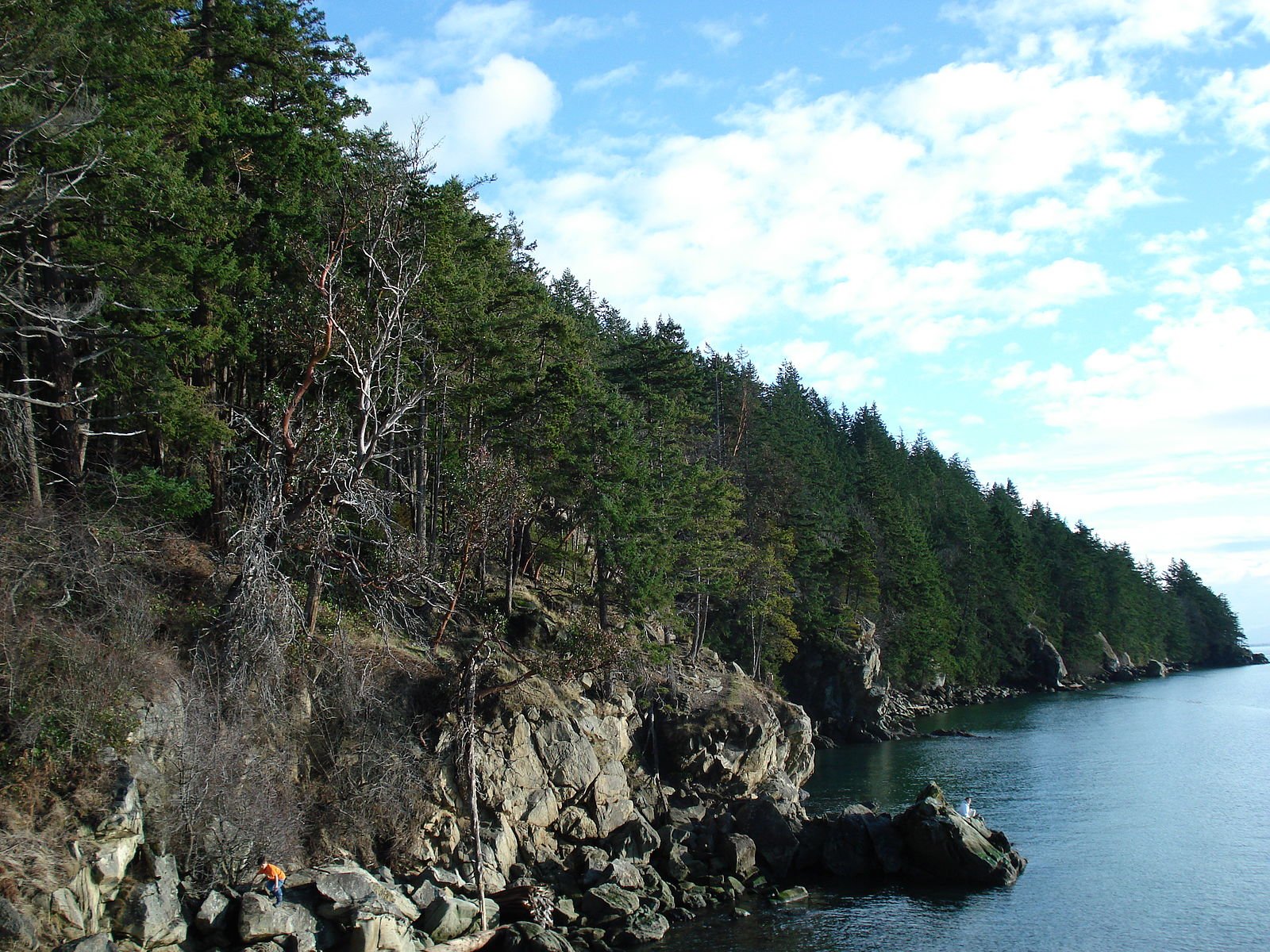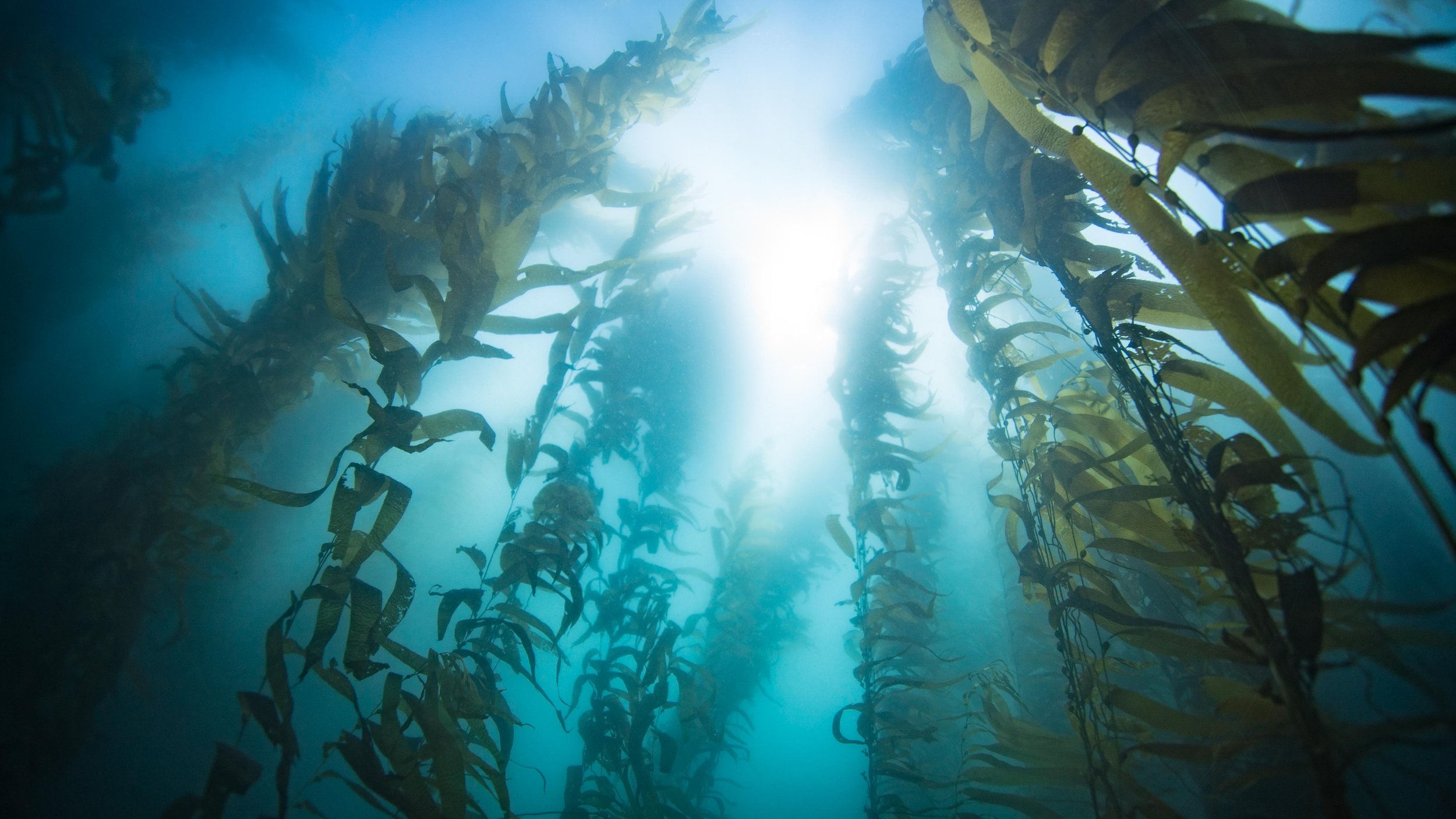Militarization in State Parks: Washington State’s Environmental Hypocrisy
Larrabee State Park in Washington. Photo courtesy of Cody Logan.
This past April, the Washington State House of Representatives passed the Climate Commitment Act (CCA), establishing a passionate dedication to supporting the state’s environment. Through a series of scientifically guided climate initiatives, the CCA pledges to foster an increasingly environmentally friendly Washington. Throughout its history, Washington has demonstrated a consistent commitment to environmental justice. In 1971, Washington became the second state to establish an environmental impact review that applied to local agencies (joined by only California)—the Washington State Environmental Policy Act (SEPA). Arguably the state’s most fundamental piece of environmental legislation, SEPA ensures that state and local agencies comprehensively consider potential environmental effects throughout their decision making process. SEPA requires that a government proposal must include thorough “identification and evaluation of possible impacts a government proposal may have on the government.” Especially given that its governor served as co-chair of the United States Climate Alliance and ran a presidential platform centered around climate justice, coupled with the state’s pioneering of progressive carbon pricing legislation, its lead on renewable energy consumption, and championing of responsible environmental impact review—on paper, Washington is nationally perceived as an emblem of environmental progressivism.
Washington State Legislature building in Olympia, Washington. Photo.
Yet despite the state’s seemingly progressive environmental developments, Washington finds itself regressing politically, becoming the first state in the US to introduce covert military training in state parks—an unprecedented endangerment of innocent park visitors and public land.
In spite of overwhelming public objection, consisting of over 800 written comments, 7300 petition signatures, and 57 verbal testimonies against the usage of state parks for military training, in addition to opposition from various county commissions, city councils, and local environmental advocacy organizations, the Washington State Parks and Recreation Commission voted 4-3 to grant a permit to the US Navy on January 28th. This permit will grant the US Navy access to 28 coastal state parks for military warfare training. The 28 Washington state parks at risk of becoming training grounds include beloved destinations like Cama Beach, Deception Pass, and Fort Townsend. The approval of this permit means that Navy SEALs will be able to use the aforementioned state parks to conduct independent training entailing landing on shorelines, climbing upland, and conducting covert military surveillance on unbeknownst park visitors.
In a statement to the Whidbey News-Times, Navy Region Northwest Deputy Public Affairs Officer Sheila Murray, explained that members of the public may be unwittingly a part of the military training: “The intent of the training is to teach trainees the skills needed to avoid detection and to avoid leaving any trace behind … That means conducting operations around the public without the public being aware.”
This nonconsensual use of Washington state parks raises concerning questions about the privacy of Washington residents. Even more alarming is that if public spaces designated for recreation like state parks can’t ensure privacy and serenity, to what limit will natural land continue to be expensed for militarization?
The use of state parks for military training also poses an unprecedented environmental issue. With limited existing formal research on the environmental impacts specifically caused by military training, it is relatively unclear the exact extent to which the environment will be harmed by this policy. This ambiguity is exactly why environmental activists contend that the vote to allow the military to train in state parks was irresponsible and hasty.
In response to this violation of Washington’s natural lands, the Whidbey Environmental Action Network (WEAN)—an environmental advocacy non-profit local to Washington dedicated to preserving the biological diversity of the Pacific Northwest—is suing the Washington State Parks and Recreation Commission for irresponsible negligence in their vote to allow the Navy to conduct military warfare training in Washington State parks.
Marianne Edain (left) and Steve Erickson, environmental activists and co-founders of WEAN. Photo.
In an interview with Steve Erickson—co-founder of WEAN and litigation coordinator for the lawsuit—he contends that the Washington State Parks and Recreation Commission has set a dangerous precedent for the militarization of natural lands. Erickson explained that the Navy will be landing on beaches using submarines and climbing up shorelines. With concerns for our marine life and vegetation, Erickson pointed to how nearshore kelp forests and eelgrass can be harmed by the use of such machinery in our beaches.
Kelp forests underwater near La Jolla cliffs. Photo.
Moreover, given how sensitive and erosion prone vegetation is, Erickson explained that careless actions can leave rare plant species disrupted: “When the Navy is off hiding in the bushes, sometimes there are rare things in those bushes—plants and animals. I don’t expect your average SEAL trainee to have a working knowledge of rare plants and animals and how to behave around them, that’s not what they’re trained for, that’s not their job.”
Not in Our Parks, the advocacy campaign sponsored by WEAN, states that every park has its own set of unique natural and cultural resources, so “the potential for significant adverse impacts needs to be considered separately for each unique park to meet the legal requirement to protect the resources of each park.”
Erickson also asserts that the current attempt to turn state parks into military training grounds is, simply put, illegal.
“Something can be done that’s illegal until somebody stops it, one way or the other. [Military training in state parks] is contrary to the purpose of state parks in both their legal policies, legally adopted policies, the laws governing state parks … their regulations, [and] the state laws governing state parks,” he said.
Referencing SEPA, Erickson explained that the Washington State Parks Commission failed to uphold the environmental protection policy by not thoroughly researching the potential environmental consequences of voting to allow the military to train in state parks. WEAN argues that the Parks Commission violated SEPA by specifically adopting only the final mitigated determination of non-significance on the Navy’s proposal. The legal complaint filed by WEAN further asserts that the commission did not consider the training’s impact on park visitors, who may be fearful of not only encountering military personnel and weaponry but also the possibility of being surveilled by these military personnel.
But this willful ignorance toward militarization among the Washington State Parks and Recreation Commission is unsurprising. Navy documents reveal that park commissioners were offered discreet flights to tour aircraft carriers paired with complimentary overnight stays, luncheons with the Admiral and Undersecretary of the Navy, and private tours of Navy facilities. The extensive footprint the US military has on Washington State is not only demonstrated by the commission’s lengthy transactional relationship with the US military, but also Washington’s housing of the third largest Navy installation in the US. Such military influences in Washington make the state, as Erickson puts, an “easy mark,” for expanding military training.
Military warfare training is the antithesis of the traditional peace and tranquility that state parks seek to offer to visitors and wildlife. For now, only a handful of parks in Washington State are threatened, but if government agencies continue to submit to military influence, this handful of parks will become a torrent. Before we know it, public lands beyond just state parks will become targets. The trend of unethical militarization is an increasing one and will only continue to grow if government agencies do not responsibly assess its ramifications. As Erickson said, “If the military can train in state parks, there will be no place where they will not be able to train … No place in society will be exempt from militarization.” When Washington pridefully portrays itself as environmentally progressive, but prioritizes the needs of the military at the expense of its state parks, wildlife, and environmental protection policies—how environmentally progressive of a state can it really be?
Khanh Doan is a staff writer for CPR and a first-year in Columbia College studying Comparative Race and Ethnicity. You can usually find her talking about disability justice or in K-town, perusing for boba and skincare.




